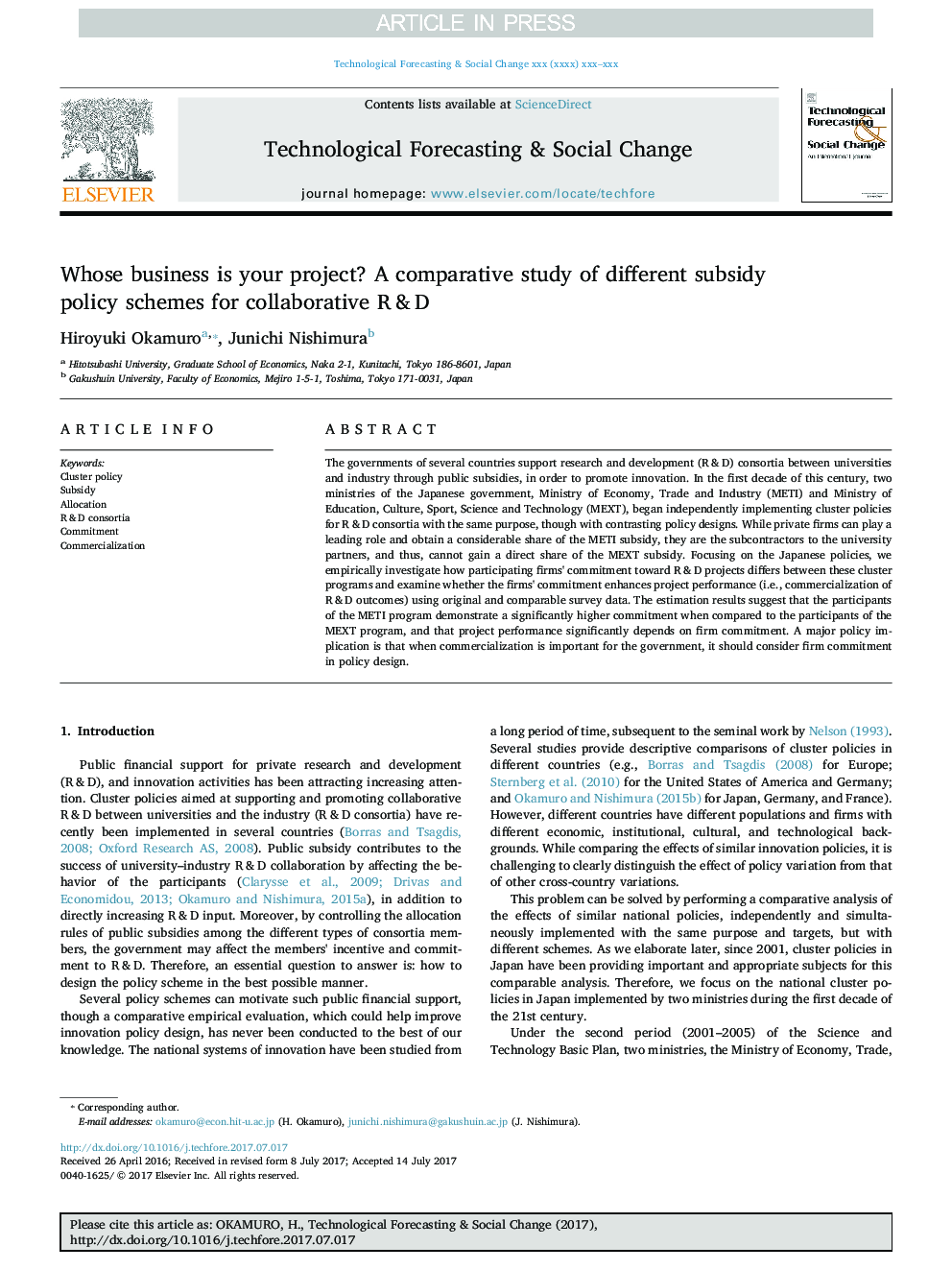| Article ID | Journal | Published Year | Pages | File Type |
|---|---|---|---|---|
| 7255722 | Technological Forecasting and Social Change | 2018 | 12 Pages |
Abstract
The governments of several countries support research and development (R&D) consortia between universities and industry through public subsidies, in order to promote innovation. In the first decade of this century, two ministries of the Japanese government, Ministry of Economy, Trade and Industry (METI) and Ministry of Education, Culture, Sport, Science and Technology (MEXT), began independently implementing cluster policies for R&D consortia with the same purpose, though with contrasting policy designs. While private firms can play a leading role and obtain a considerable share of the METI subsidy, they are the subcontractors to the university partners, and thus, cannot gain a direct share of the MEXT subsidy. Focusing on the Japanese policies, we empirically investigate how participating firms' commitment toward R&D projects differs between these cluster programs and examine whether the firms' commitment enhances project performance (i.e., commercialization of R&D outcomes) using original and comparable survey data. The estimation results suggest that the participants of the METI program demonstrate a significantly higher commitment when compared to the participants of the MEXT program, and that project performance significantly depends on firm commitment. A major policy implication is that when commercialization is important for the government, it should consider firm commitment in policy design.
Related Topics
Social Sciences and Humanities
Business, Management and Accounting
Business and International Management
Authors
Hiroyuki Okamuro, Junichi Nishimura,
